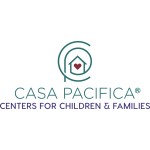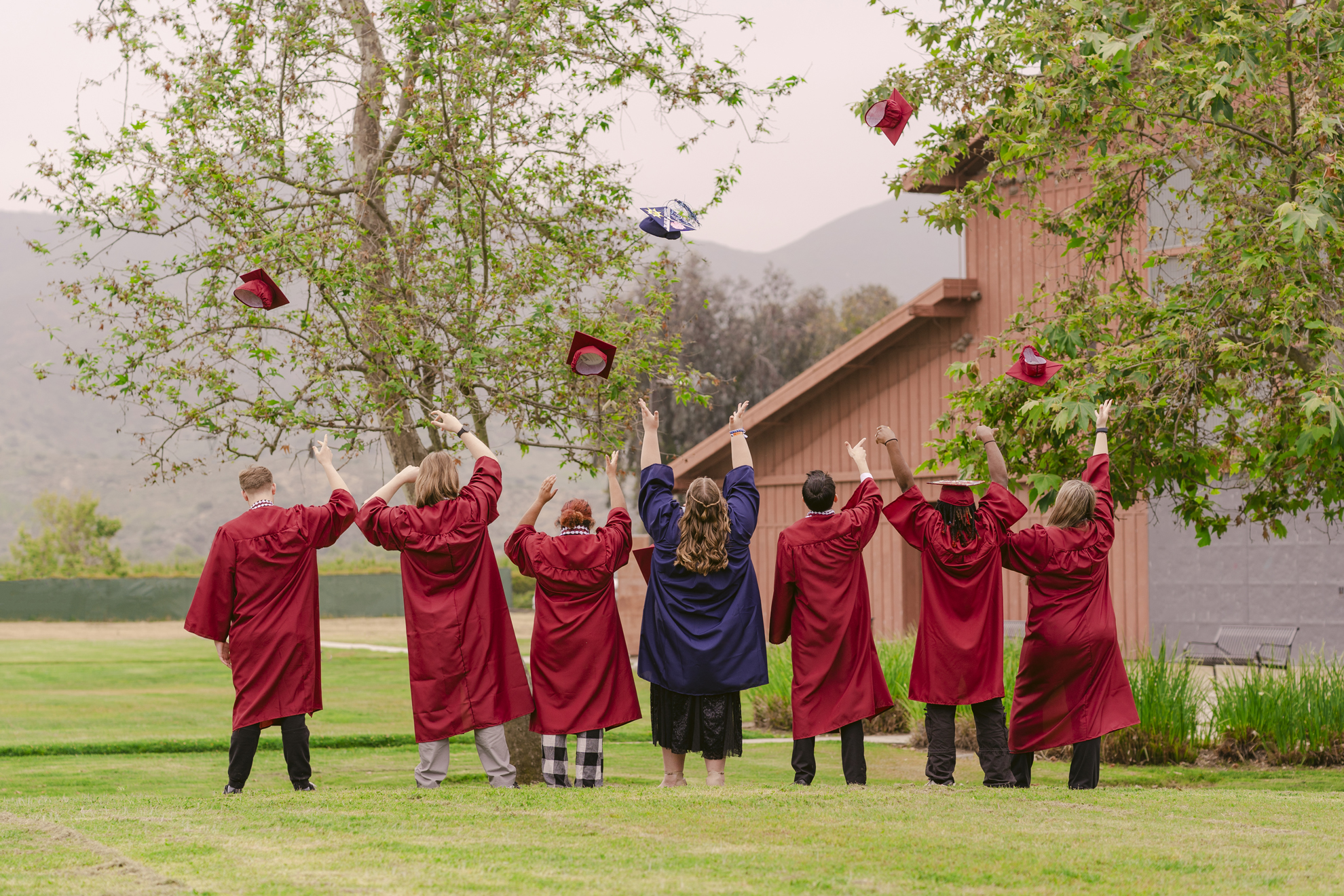
Flipped desks, fits of rage and failing courses. This was Noah’s reality before he arrived at Casa Pacifica. Due to problems at home Noah was suffering from anxiety and depression causing frequent emotional outbursts. He was failing his classes and on the verge of expulsion when he became a student at Casa Pacifica’s Non-Public School (NPS).
Located on Casa Pacifica’s Camarillo campus, the NPS is a Western Association of School and Colleges (WASC) accredited, diploma-granting institution serving children, adolescents, and transitional age youth in grades K-12. The school provides an opportunity for students who are severely credit deficient, facing mental or behavioral health challenges or who have an Individualized Education Plan.
The NPS is designed to meet the specific academic needs of each student. Elements like small class sizes, personalized academic interventions and a relationship-based framework give students the building blocks to achieve positive change and personal resiliency.
“I used to hate school so much, but the NPS has changed my outlook,” says Noah. “I don’t always love doing the work, but the staff make it worth it. I look forward to coming to class to see my friends and teachers.”
Noah is part of one of the largest graduating classes in the history of Casa Pacifica’s NPS. He, along with six other seniors, recently donned their caps and gowns and walked across the quad to receive their diplomas and shake the hand of Senior Director of Education and NPS principal, Mark Capritto, Ed.D.
Capritto has served as NPS’s director since 2015. He says while NPS helps student catch up and even graduate high school, the scope reaches far beyond academics.
“Relationship-building is a key component. We want to build our students’ sense of competence rather than punishing them for academic or behavioral performance,” says Capritto. “It’s a new way of thinking about how we work with at-risk kids so they feel school is the place for them, rather than a place to avoid.”
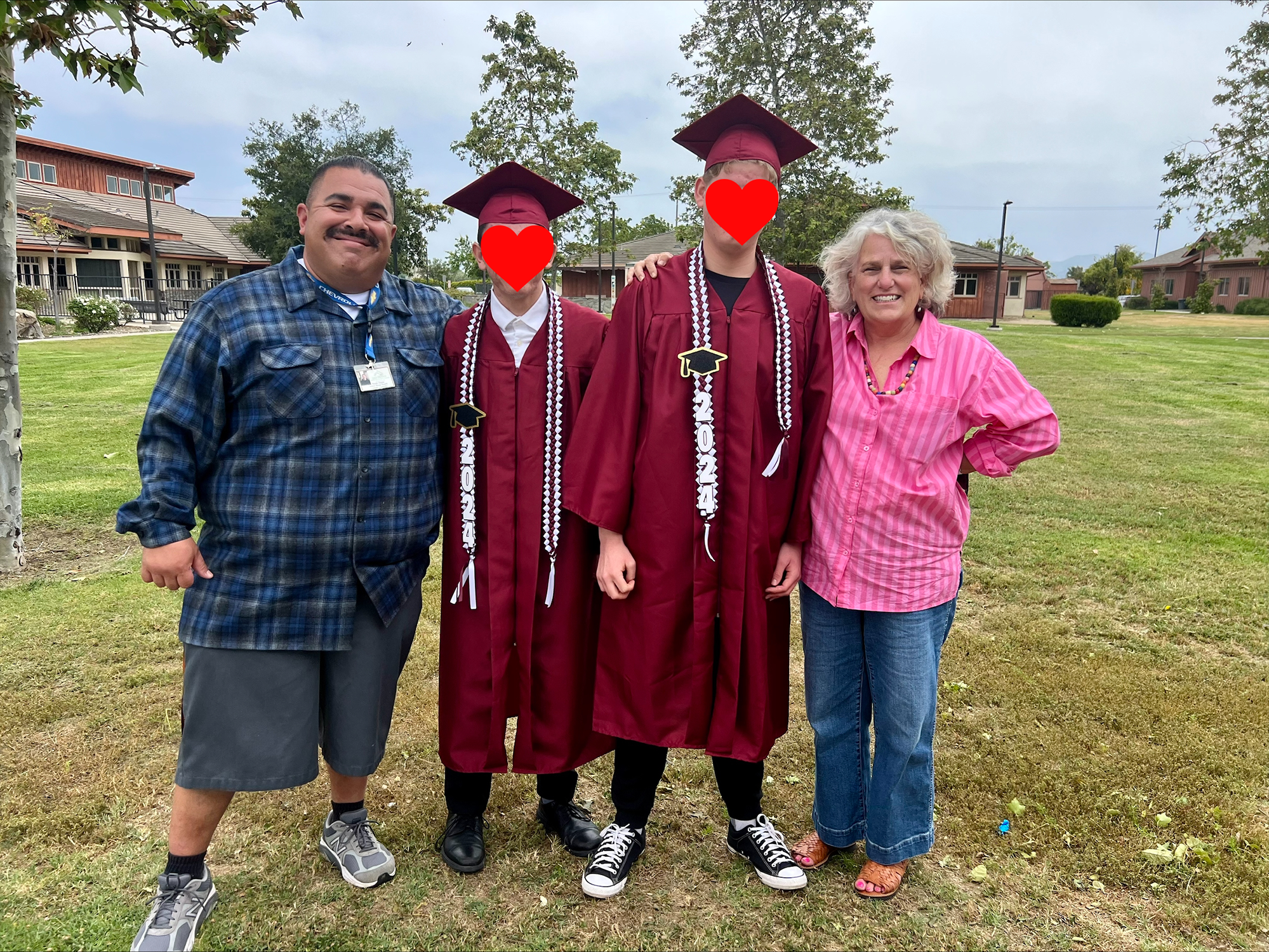
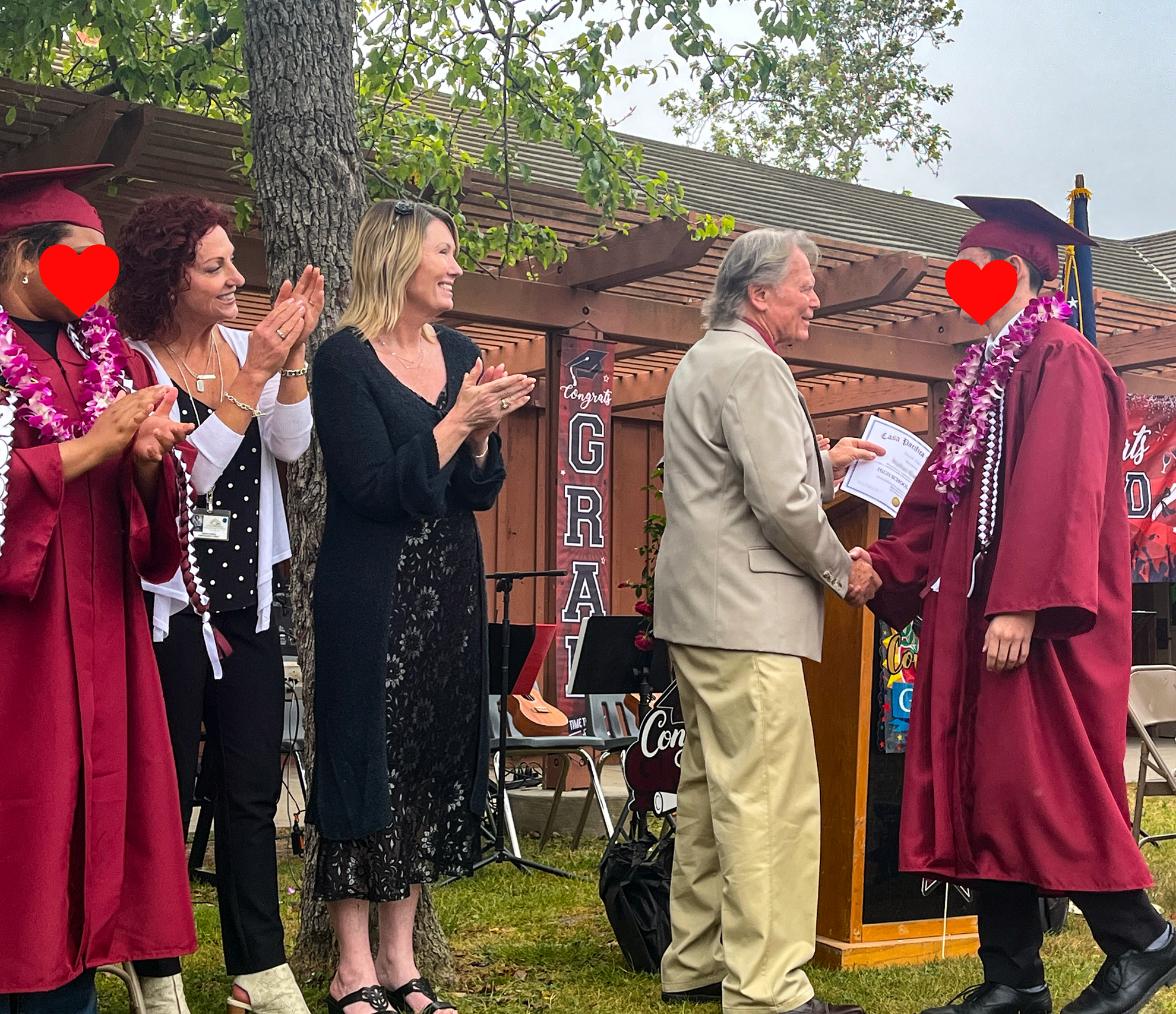
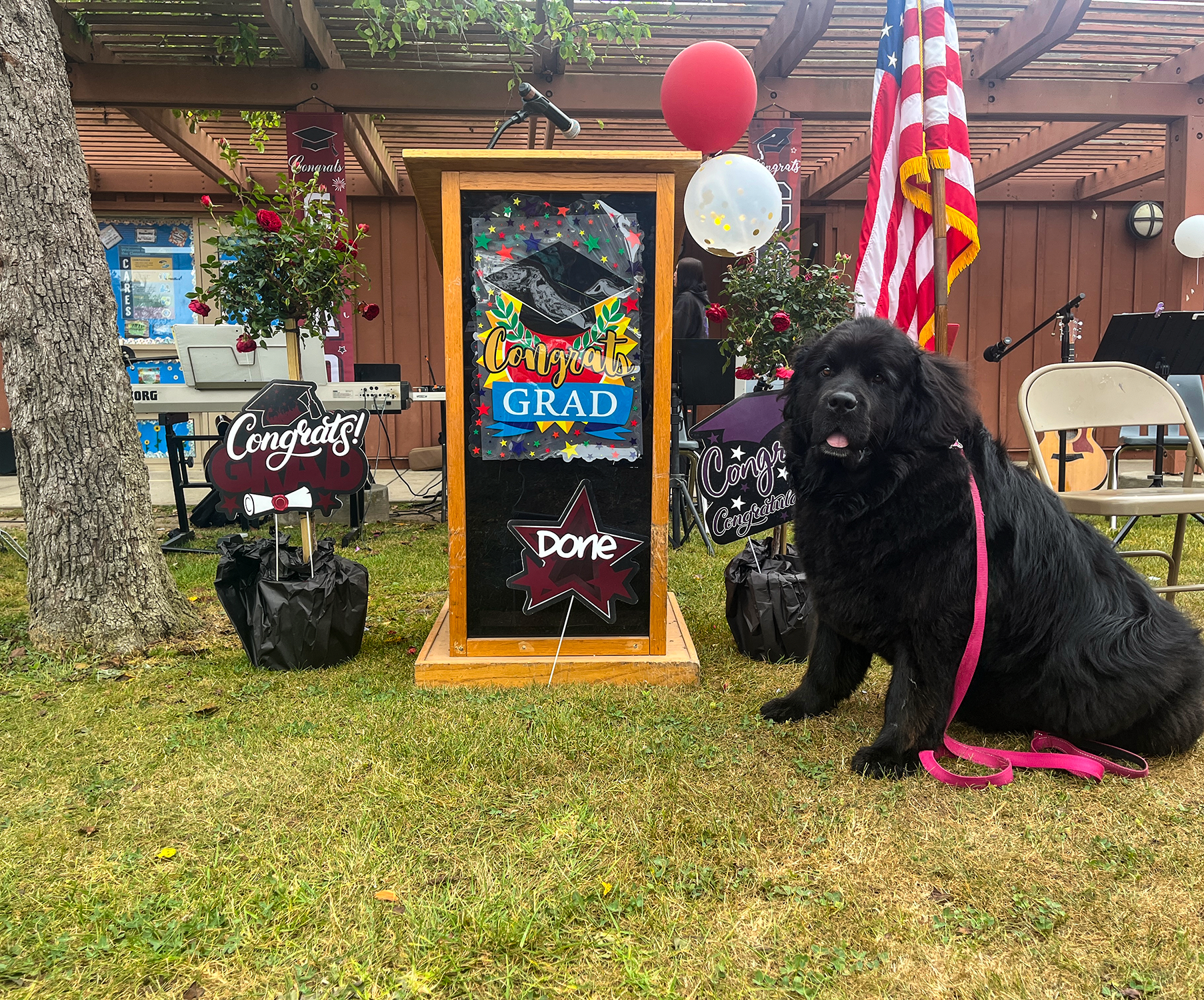
The NPS offers students a safe space to land and used positive reinforcement to instill changes in students. Such is the case of another 2024 NPS graduate, Alex, who was severely deficient on the credits necessary to graduate from high school.
“I used to get so frustrated with my schoolwork that I would just give up,” says Alex. “I especially hated math! But the class format here was so helpful. Our teachers have us work together in groups and teach each other. We tackle each problem piece by piece and work as a team. I never feel judged for not knowing something.”
In addition to their schoolwork both Noah and Alex received job training and work experience through Casa Pacifica. Noah was selected to help manage the student store which included pricing the items, keeping inventory and stocking the shelves to keep the store organized. Alex was given an internship with a local storage facility through the Ventura County Office of Education’s Workability program.
“I am looking forward to graduating,” says Alex. “I am excited to get a job and start making my own income. I have Casa Pacifica and the staff at the NPS to thank. I am ready for my life to begin.”
To learn more about Casa Pacifica’s Non-Public School visit our website.
If you’re interested in supporting Casa Pacifica’s life-changing mission, donate now!
About Casa Pacifica
Headquartered in Camarillo, California, Casa Pacifica is the largest non-profit provider of children’s and adolescent mental health services in Ventura and Santa Barbara Counties. It’s nationally accredited programs and services include residential treatment, therapeutic behavioral services, wraparound services, mobile crisis response, transitional youth services, school-based mental health services and foster care services along with a fully certified, diploma-granting Non-Public School for grades K-12. Casa Pacifica specializes in treating children and youth who struggle with complex mental health challenges including anxiety, depression and emotional dysregulation. Nearly 52,500 children have been admitted to one of its programs since its founding in 1994.
To learn more or to get involved, email info@casapacifica.org or call 805-366-4040.

